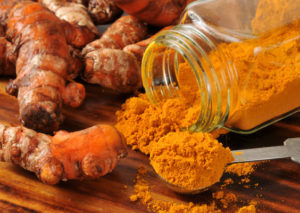
The single most important thing you can do to prevent premature aging is to control inflammation.
Inflammation is the body’s effort to heal itself. But too much produces disease.
In fact, most of the diseases associated with aging are essentially inflammatory diseases. That includes cancer, heart disease, arthritis, arteriosclerosis, Alzheimer’s disease and diabetes.
And the truth is that we’re all inflamed thanks to a modern diet that includes inflammation-friendly ingredients like sugar, cheap vegetable oils, and refined carbohydrates.
Most doctors are not educated in the role of nutrition in disease. And they often recommend the bland buzz phrase of eating a “balanced diet.” But that’s usually just a balance of junk, like breads, cereals, and other processed foods.
These foods cause relentless inflammation in our bodies because we weren’t designed to eat them.
Our primal ancestors didn’t have food allergies. And they had almost no chronic disease to speak of. That’s because they ate a natural healing diet that included wild-caught fish, lean free-range meats, edible marine plants, nuts, and berries.
You can do the same thing.

Today, I’ll show you how my colleague Dr. Keith Scott-Mumby, PhD, author of the bestselling book Diet Wise, has developed a personalized system to help you escape the damaging inflammation of our modern diet.
The Secret of Using Food to Control Your Genetic Future
I’m delighted that Dr. Scott-Mumby is joining me at my Palm Beach Anti-Aging Summit on October 8-9. He’s at the vanguard of a booming field of anti-aging research called the nutrigenomics of diet. This means that what we eat is capable of switching “good” genes on and “bad” genes off.
This has given us a wealth of new ideas about using food to control heath and aging. And it’s helped Dr. Scott-Mumby discover a “hidden allergy” effect that underlies many serious diseases.
In short, good nutrition isn’t just about what your diet is lacking. It’s also about taking away the foods that are causing you harm. No two people are alike. What’s good for one person can make another seriously ill.

At the summit, Dr. Scott-Mumby will reveal how to create an individualized eating plan that is exclusive to you.
If you follow his advice, you’ll figure out what foods agree with you and which ones cause a dangerous inflammatory reaction.
Eat more of the former and less of the latter and you’ll start to look and feel younger and feel sharper mentally in mere weeks. The results his patients have seen are amazing.
There’s just no getting around the fact that to feel great and live a long life you need to address the issue of food-caused inflammation.
Ancient Root from Bali Snuffs Out Inflammation
A great way to start today is with one of my favorite anti-inflammatory foods – turmeric root.

I became a big fan of this healing herb during my trips to Bali. My friend Westi grows a lot of turmeric in his garden, and it has remarkable anti-inflammatory properties.1,2,3
Here’s how to take it:
- I usually eat turmeric root because it’s delicious in stir-fry. But you can also get the ground root as a powder. Just make sure it’s pure turmeric and not mostly curry.
- If you can’t get turmeric fresh or ground, look for a “curcumin” supplement – that’s turmeric’s main beneficial component. Look for at least 90% or greater curcuminoids, whichever formula you use.
Keep in mind that foods are not going to solve every problem. But they are the easiest and best place to start because you don’t need medical training to eat.
All you need is a little knowledge of what’s inflammatory, and some application. Then once you know what to do, you’ll have it sorted in no time.
To learn more about inflammation and find your personal anti-inflammatory diet, check out my Palm Beach Anti-Aging Summit – and secure your access – click here.
I hope to see you there.
To Your Good Health,
![]()
Al Sears, MD, CNS
1. Taty Anna K1, Elvy Suhana MR, Das S, Faizah O, Hamzaini AH. Anti-inflammatory effect of Curcuma longa (turmeric) on collagen-induced arthritis: an anatomico-radiological study. Clin Ter. 2011;162(3):201-7.
2. Chainani-Wu N1. Safety and anti-inflammatory activity of curcumin: a component of tumeric (Curcuma longa). J Altern Complement Med. 2003 Feb;9(1):161-8.
3. Bharat B. Aggarwal1 and Kuzhuvelil B. Harikumar. Potential Therapeutic Effects of Curcumin, the Anti-inflammatory Agent, Against Neurodegenerative, Cardiovascular, Pulmonary, Metabolic, Autoimmune and Neoplastic Diseases. Int J Biochem Cell Biol. 2009; 41(1): 40–59.

